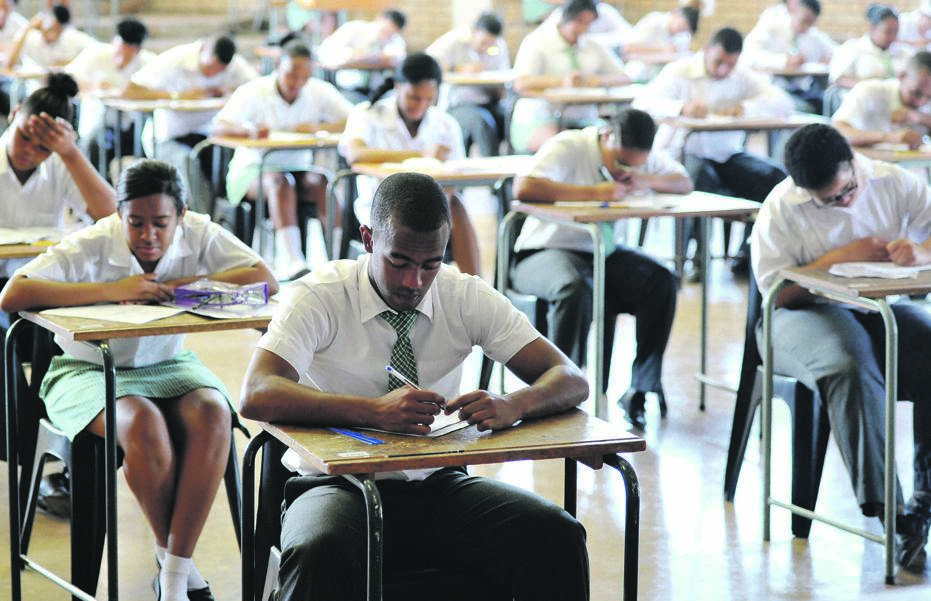
Did the EFF stick to the facts in its 2019 election manifesto? We check a selection of claims.
Claim: South Africa has one of the highest school dropout rates.
The EFF’s claim applies to a worldwide comparison, the party’s national communications manager Sixolise Gcilishe confirmed. She referred us to three documents to support the statement.
The common thread in these documents is work done by Professor Martin Gustafsson, an education economist and member of the Research on Socioeconomic Policy group at the University of Stellenbosch. However, Gustafsson does not agree that his work supports the EFF’s claim.
“In fact, as far as secondary [school] completion is concerned – that’s essentially what this is about – we’re fairly normal for a middle-income country,” he said.
Measuring dropout rates
Gustafsson said it was “widely accepted” that the dropout rate was difficult to calculate, “especially in developing countries, where data systems are limited”.
However, he said, education planners regarded the definition of the UN Educational, Scientific and Cultural Organisation (Unesco) as useful: “The proportion of pupils from a cohort enrolled in a given grade at a given school year who are no longer enrolled in the next school year.”
Gustafsson noted that the Unesco definition related to individual grades. “So one can talk about a dropout rate for Grade 10, another one for Grade 11 and so on.”
One of the alternative methods to calculate the dropout rate is to use data from household surveys to determine what proportion of the population has obtained a matric certificate.
Gustafsson said this method was not ideal, but was an “adequate stopgap”. It was the method used by the department of basic education in response to a parliamentary question about dropout rates in June last year.
Read the ANC manifesto claims we've fact-checked:
- Did only 51% of children attend school in 1994?
- No, the ANC has not provided 4.7m free houses since 1994
- 5.5m earned below minimum wage in 2017
- How much did the ANC-led government spend on infrastructure in a decade?
- Student financial aid increases from R70m to R14bn in 24 years
What is SA’s dropout rate?
The written reply contains an estimated dropout rate for those born between 1990 and 1992.
Information from Stats SA’s General Household Survey for 2014 to 2016 was used to estimate that 51.5% of these people had completed Grade 12.
We asked the department of basic education to provide more recent calculations if they were available, but it failed to respond to our query.
- According to the department of basic education, pupils leave school prematurely for reasons including pregnancy, the need to take care of ill parents or younger siblings, poverty and ukuthwala, a form of abduction that compels a young woman’s family to endorse marriage negotiations.
- The completion rate typically does not take into account Grade 12-level qualifications obtained outside the school system. But, says education economist Professor Martin Gustafsson, these numbers would have a limited impact – about 3 percentage points in recent years – on the rate.
- According to the department’s 2018 matric examination report, about one in 10 young people obtain their matric after the age of 20.
International comparisons
One of the documents the EFF referred to in support of its claim is a 2011 working paper authored by Gustafsson, but it did not include a worldwide comparison.
The working paper looked at Grade 12 completion rates in 14 countries, including Turkey, Brazil and Chile, based on data from 2003 to 2009. South Africa was ranked 12th.
Gustafsson referred Africa Check/City Press to Unesco’s upper secondary school completion rates as a source of more recent data that allow for a global comparison.
Based on these figures, the department’s 2018 matric examination report concluded that “the upper secondary education completion [Grade 12] rate for South Africa has been equal to that of middle-income countries in general in recent years”.
We compared the average upper secondary education completion rates of 68 countries for which Unesco data were available – for the five years from 2014 to last year – and found that 38 countries had lower completion rates than South Africa.
Gustafsson said while South Africa’s secondary completion rate was “fairly normal for a middle-income country”, we should aim to increase it, as many other countries are doing.
He warned that “defining our vast educational inequalities only in terms of school completion would be incorrect. Many of our inequalities relate to the quality of education, not the years of schooling completed by young people.”
Verdict: Incorrect
The EFF’s claim that South Africa’s school dropout rate is among the worst in the world is incorrect. Unesco data for 2014 to last year show that South Africa was in the top 50% of 68 countries based on secondary school completion.
The EFF provided detailed responses on the sources of its claims but the party did not comment on our findings by the deadline.
- This package is part of a journalism partnership with Africa Check, the continent’s leading fact-checking organisation. The project aims to ensure that claims made by those in charge of state resources and of delivering essential services are factually correct. In the run-up to this year’s national and provincial elections, it is increasingly important that voters are able to make informed decisions. This series aims to provide voters with the tools to do that.




 Publications
Publications
 Partners
Partners








